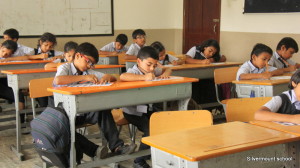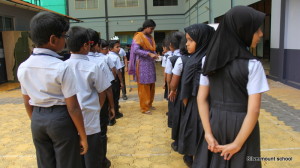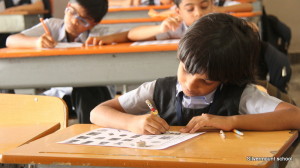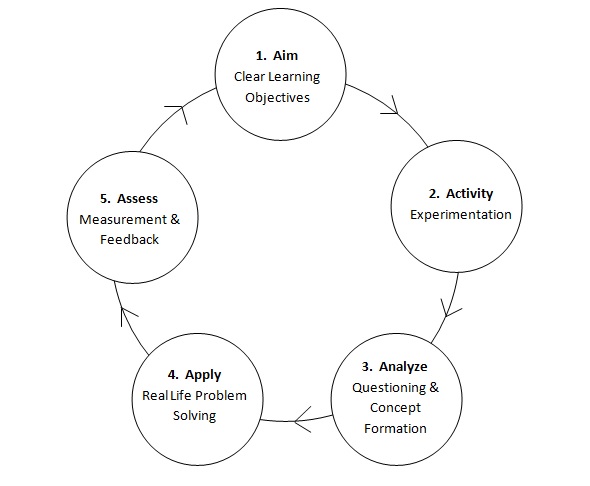Primary
In the primary years, the young mind’s curiosity runs high. They constantly explore and experiment. Hence the primary year’s program should foster appropriate skills and abilities to enable the optimum development of a child according to their age, ability and aptitude.



Our Methodology:
The curious mind and the teacher play an equally active role in the learning process at this stage. The teacher’s primary role is to help children retrieve prior knowledge on the given topic, present new information in an active way and help students learn new information in relation to what they already know.
How we implement them?
| Topic:Our Primary learners embark on a learning journey to understand the Singular and Plural Worlds. | 1.Aim | To help children understand the singular and plural nouns and how to convert a singular form to plural |
| 2.Activity |
|
|
| 3.Analyse | Display the rules chart in class for constant revision | |
| 4.Apply | Worksheets in class and homework are used to help children apply the concepts they have learned | |
| 5.Assess | Assessment is based on their participation during the activity and their performance in worksheets |
How our methodology supports our philosophy?
- Everyone is Intelligent:
We believe that everyone is intelligent and merely differ in our perception of looking at things and ways of learning them. A child at this stage becomes more independent and social. Hence all activities at this age are planned to challenge their thinking yet are within their level of ability, to nurture their team spirit and help the child develop a sense of competence.
- Brain based Learning:
Learning style is an individual’s natural or habitual pattern of acquiring and processing information in learning situations. While you may have a dominant style of learning, everyone borrows a little bit from all the styles to learn about the world around them. Hence discussions, drawings and live model making activities have been included as ways of imparting the same topic.
- Shifting to 21st century skills:
How we teach must reflect how our students learn. It should also reflect the world our students move in. Hence our style and approach to teaching emphasize on building technological, information and media skills, developing thinking skills, making use of project based learning and fosters contextual learning bridging the various disciplines and curriculum areas.
- Partnering with parents:
Constant feedback & interaction with you and your child helps us to understand mutual expectations and allows us to plan accordingly to include the objectives in your child’s learning curve.




